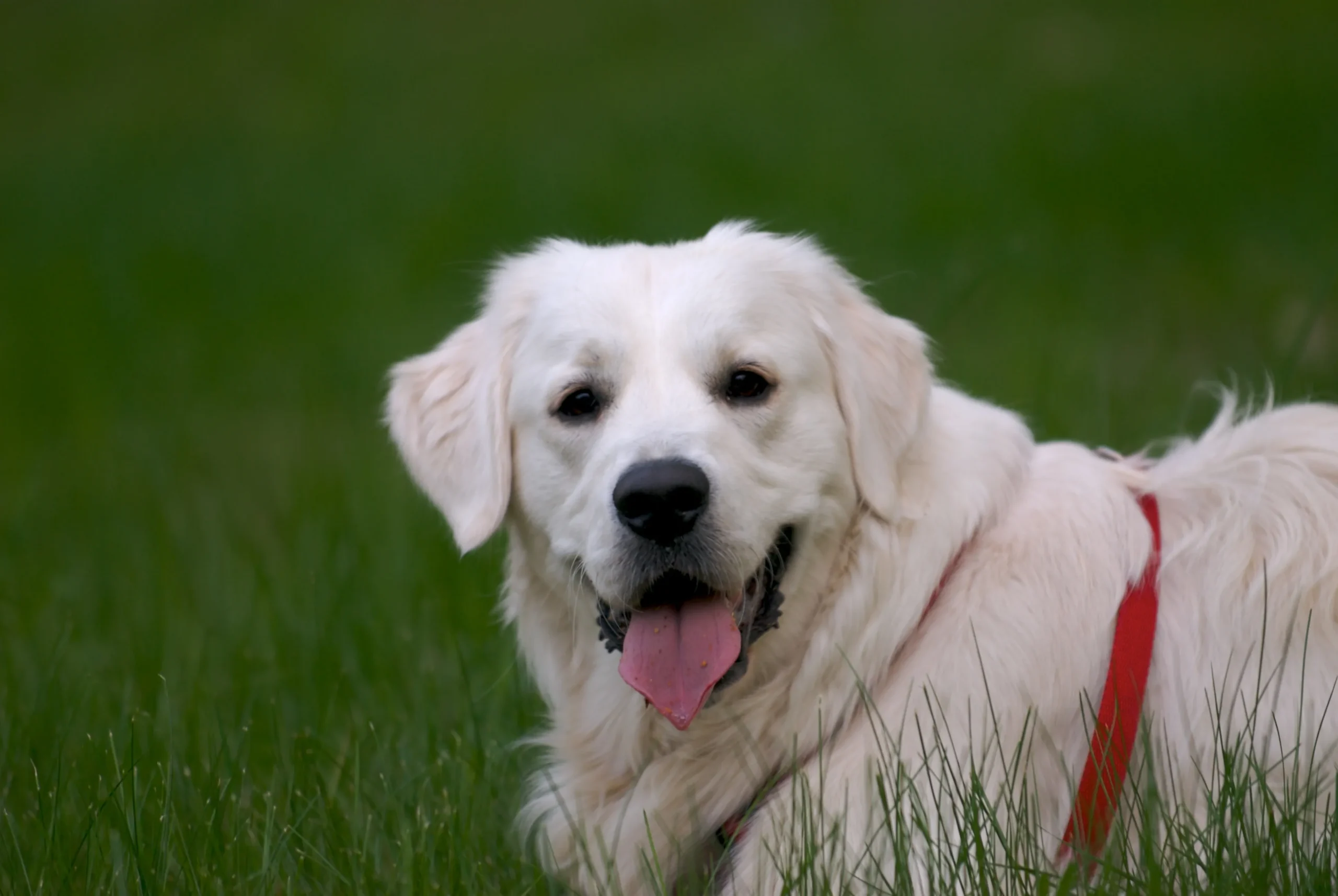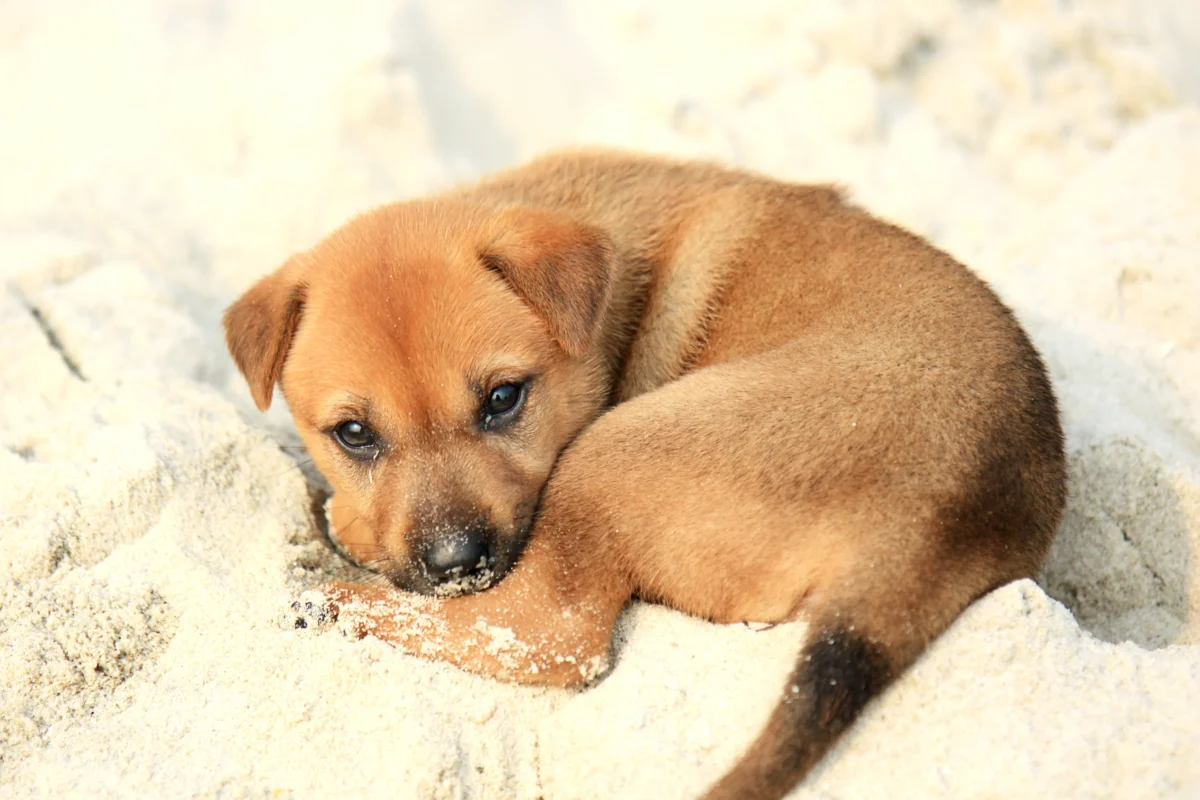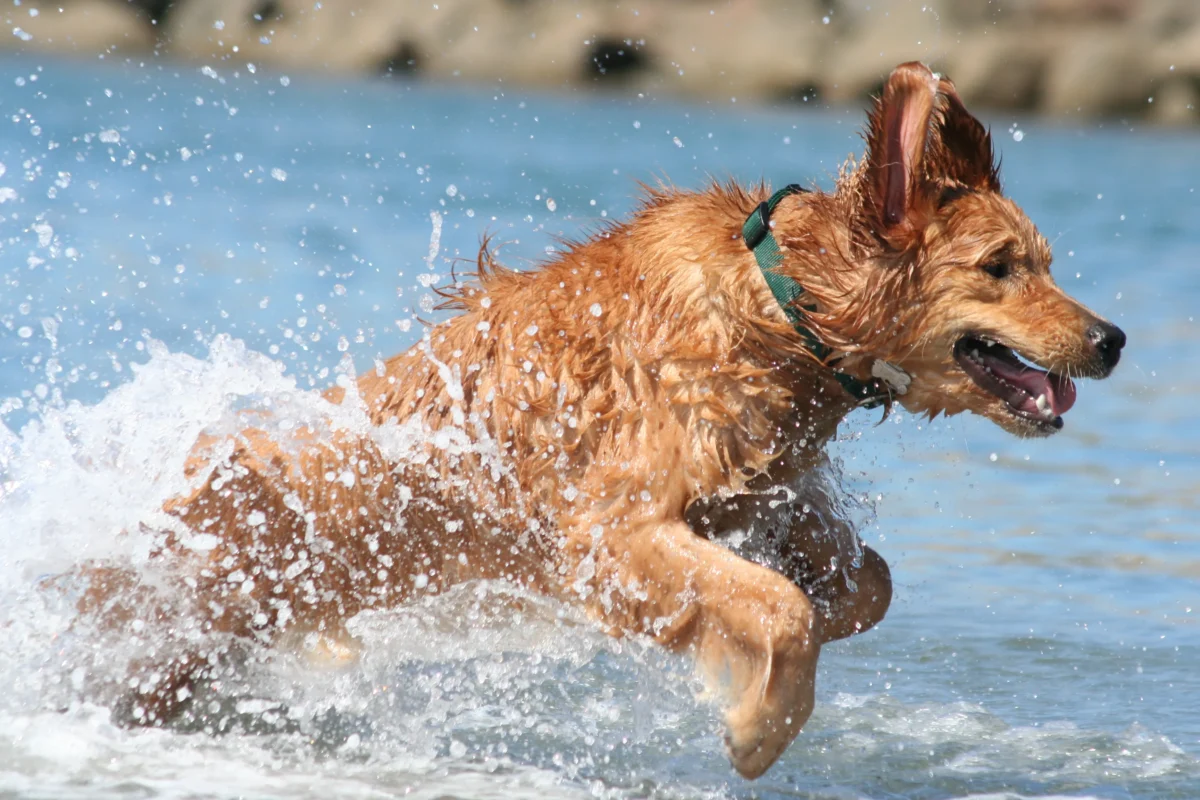Are you a proud golden retriever owner who loves to spoil your furry friend with treats? If so, you might be wondering if cheese is a safe and healthy option for your beloved pet. In this article, we’ll explore whether cheese is bad for golden retrievers and provide you with some important information to consider. So, before you reach for that slice of cheddar, let’s find out if cheese is a suitable snack for your four-legged companion.
As a responsible pet owner, it’s crucial to be aware of the potential risks and benefits of different foods for your golden retriever. Cheese can be a delicious and tempting treat, but is it safe for your furry friend? In this article, we’ll dive into the topic of whether cheese is bad for golden retrievers and what you should know before sharing this dairy delight with your pet. So, let’s get started and find out if cheese should be on your golden retriever’s menu.
If you’re a golden retriever owner, you know that these lovable dogs can have a hearty appetite. But when it comes to their diet, it’s important to know what foods are safe and healthy for them. One common question that arises is whether cheese is a good option for golden retrievers. In this article, we’ll explore the potential risks and benefits of feeding cheese to your furry friend, so you can make an informed decision about their diet. So, let’s dig into the topic of whether cheese is bad for golden retrievers.
Can Golden Retrievers Eat Cheese?
As a dog lover and owner of a golden retriever and a Goldendoodle, you want nothing but the best for your furry friends. That includes providing them with a well-balanced diet to keep them healthy and happy. But when it comes to cheese, you may be wondering if it’s safe to share this delicious treat with your golden retriever. Let’s explore whether or not cheese is suitable for your furry companion.
Moderation is key: While cheese can be a tasty and tempting treat for your golden retriever, it’s important to remember that moderation is key. Cheese is high in fat and calories, so feeding it in excess can lead to weight gain and other health issues. Therefore, it’s best to offer cheese as an occasional treat, rather than making it a regular part of their diet.
Lactose intolerance: Like many other dogs, some golden retrievers can be lactose intolerant. Lactose is the sugar found in milk and dairy products, including cheese. Dogs that are lactose intolerant may experience digestive upset, such as diarrhea, gas, and bloating, when consuming dairy products. If you notice any of these symptoms after giving your golden retriever cheese, it may be an indication that they are lactose intolerant.
Choose the right type: If you decide to share cheese with your golden retriever, it’s important to choose the right type. Opt for low-fat and low-sodium options, as high levels of fat and sodium can be detrimental to your dog’s health. Also, avoid cheese varieties that contain additives, such as onions or garlic, as these can be toxic to dogs.
Allergies: Just like humans, dogs can develop allergies to certain foods, including cheese. If you notice any signs of an allergic reaction in your golden retriever, such as itching, redness, or gastrointestinal distress, it’s best to consult with your veterinarian. They can help determine if the cheese is the culprit and recommend an appropriate course of action.
While cheese can be a tasty treat for your golden retriever, it should be given in moderation and with caution. Be mindful of your dog’s individual needs and any potential allergies or intolerances they may have. When offering cheese, choose low-fat, low-sodium options and avoid ones with additives. Remember, a well-balanced diet is important for the overall health and well-being of your furry friend.
Potential Dangers of Cheese for Golden Retrievers
As a dog lover and owner of a golden retriever and a Goldendoodle, you are always looking for ways to keep your furry friends healthy and happy. While cheese may seem like a tasty treat to share with your pups, it’s important to be aware of the potential dangers it can pose to golden retrievers.
First and foremost, cheese is high in fat and calories. Golden retrievers are prone to weight gain, and consuming too much cheese can contribute to obesity, which can lead to a range of health issues. It’s crucial to monitor your dog’s calorie intake and ensure they are getting a balanced diet that meets their nutritional needs.
Additionally, some golden retrievers may be lactose intolerant. Lactose is the sugar found in milk and dairy products, and dogs with lactose intolerance lack the enzyme needed to break it down properly. Feeding cheese to a lactose intolerant golden retriever can result in digestive upset, including diarrhea and gas.
Another concern when it comes to cheese is its sodium content. Excessive sodium intake can lead to health problems such as increased blood pressure and kidney issues in dogs. Opting for low-sodium cheese options or limiting their cheese intake can help mitigate these risks.
Moreover, some varieties of cheese may contain additives, such as garlic or onion, that are toxic to dogs. These ingredients can cause a range of symptoms, including vomiting, diarrhea, and even damage to red blood cells. Always check the ingredients label and avoid any cheese that contains potentially harmful additives.

« Discover the Surprising Secret to Calming Your Golden Retriever in Just Minutes
Discover the Ultimate Answer: The Perfect Age for Neutering Golden Retrievers Revealed »
Lastly, dogs can also develop allergies to cheese. Signs of an allergic reaction may include itching, excessive licking or scratching, skin redness, and gastrointestinal upset. If you notice any of these symptoms after feeding your golden retriever cheese, it’s best to consult with your veterinarian to determine if an allergy is the cause.
Remember, moderation is key. While an occasional small amount of cheese may be enjoyed by your golden retriever, it should never replace a well-balanced diet. Always prioritize their overall health and consult with your veterinarian for personalized advice and recommendations.
Lactose Intolerance in Golden Retrievers
If you’re considering giving cheese to your golden retriever, it’s important to be aware of their potential for lactose intolerance. While it’s true that many dogs enjoy the taste of cheese, not all of them can digest it properly.
Golden retrievers, like many other dog breeds, can be lactose intolerant. Lactose is a sugar found in milk and dairy products. It requires an enzyme called lactase to be broken down and absorbed by the body. However, some dogs, including golden retrievers, have low levels of lactase, making it difficult for them to digest lactose.
Feeding cheese or other dairy products to a lactose-intolerant golden retriever can lead to digestive upset. You may notice symptoms such as gas, diarrhea, or vomiting. These unpleasant effects can cause discomfort and affect your dog’s overall well-being.
If you suspect that your golden retriever is lactose intolerant, it’s best to avoid giving them cheese altogether. Instead, opt for lactose-free alternatives or treats that are specifically formulated for dogs. There are many healthy and delicious options available that can satisfy your dog’s taste buds without causing any digestive issues.
Keep in mind that every dog is different, and while one golden retriever may be able to tolerate small amounts of cheese without any issues, another may have a more severe reaction. It’s always a good idea to consult with your veterinarian before introducing any new foods into your dog’s diet.
Remember, your golden retriever relies on you to provide them with a well-balanced and nutritious diet. By understanding their individual needs and taking into consideration potential lactose intolerance, you can help keep them happy and healthy for years to come. So, if you’re thinking of sharing some cheese with your furry friend, it’s important to consider their digestive health and opt for alternatives that won’t cause any discomfort.
Let’s move on to the next important topic: The Dangers of High-Fat Cheese.
High Fat Content in Cheese and Its Implications
As a responsible dog owner, it’s important to be aware of the potential risks associated with feeding cheese to your furry friends. One significant concern is the high fat content found in cheese and its implications for golden retrievers and Goldendoodles.

Fat is an essential part of a dog’s diet, providing them with energy and aiding in the absorption of important vitamins. However, excessive fat intake can lead to weight gain and obesity, which can have serious health consequences for your beloved four-legged companions.
Cheese contains varying amounts of fat, depending on the type and brand. Some cheeses can be extremely high in fat, which makes them an unhealthy choice for your golden retriever or Goldendoodle. Excess fat can not only lead to weight issues but may also contribute to heart problems, pancreatitis, and even liver disease in dogs.
Another concern related to cheese consumption is the possibility of lactose intolerance in golden retrievers and Goldendoodles. While some dogs can tolerate small amounts of lactose, others may experience digestive upset, including diarrhea, vomiting, and abdominal discomfort. Cheese, being a dairy product, contains lactose, which could potentially cause these unpleasant symptoms in sensitive dogs.
To mitigate the risks associated with cheese consumption, it’s crucial to make informed choices. Opt for low-fat and low-sodium cheese options that are specifically formulated for canines. Also, be vigilant about avoiding cheese with toxic additives or excessive salt as they can be harmful to your pet’s health.
It’s worth mentioning that while cheese can be an occasional treat, overindulging can lead to unwanted consequences. Dogs, including golden retrievers and Goldendoodles, have their nutritional needs best met through a balanced and species-appropriate diet. Incorporating cheese sparingly into their meals can provide an enjoyable experience without compromising their overall well-being.

Remember, if you notice any signs of allergic reactions or digestive issues after feeding your dog cheese, consult your veterinarian for professional advice. Your veterinarian can guide you in making informed dietary decisions that are best suited for your furry friend.
While cheese may be a delightful snack for us, it’s crucial to consider the potential risks associated with feeding it to golden retrievers and Goldendoodles. Be mindful of the high fat content in cheese and its implications for your pet’s health. By making informed choices and practicing
Moderation is Key: How Much Cheese is Safe for Golden Retrievers?
As a fellow dog lover and owner of both a golden retriever and a Goldendoodle, I understand the desire to spoil your furry companions with tasty treats. Cheese, with its rich and creamy texture, may seem like a delightful option. However, it’s important to remember that moderation is key when it comes to feeding cheese to your golden retriever or Goldendoodle.
You may be wondering, “How much cheese is safe for my beloved furry friend?” While the occasional small piece of cheese as a special treat is generally fine, it’s important to keep in mind a few key factors to ensure your pet’s well-being.
The High Fat Content

Cheese is notorious for its high fat content, and consuming too much fat can lead to a wide range of health issues for golden retrievers and Goldendoodles. These include weight gain, obesity, heart problems, pancreatitis, and liver disease. Therefore, it’s crucial to limit the amount of cheese you offer your dog to prevent these potential problems.
Lactose Intolerance
Another consideration when it comes to feeding cheese to these breeds is lactose intolerance. Just like some humans, golden retrievers and Goldendoodles may have difficulty digesting lactose, the sugar found in milk products. This can lead to digestive upset, such as diarrhea, gas, or bloating. It’s essential to monitor your dog and observe if they show any signs of discomfort or allergic reactions after consuming cheese.
Finding a Balance
To ensure your golden retriever or Goldendoodle can enjoy the occasional cheese treat without compromising their health, it’s recommended to follow these guidelines:

- Offer small pieces of low-fat and low-sodium cheese as an occasional treat rather than a regular part of their diet.
- Avoid cheese varieties with toxic additives or excessive salt, as these can be harmful to your furry friend.
- Always provide a well-balanced and nutritious diet for your dog, with cheese serving as an occasional extra.
- If you have any concerns or notice signs of an allergic reaction or digestive issues, consult with your veterinarian for personalized advice.
Remember, your furry friend’s overall health and well-being should always be a top priority. By practicing moderation and making informed choices, you can ensure that your golden retriever or Goldendoodle enjoys their cheese treats in a safe and responsible manner.
Conclusion
Remember to always prioritize the health and well-being of your furry friend, whether they are a golden retriever or a Goldendoodle. Feeding cheese to these breeds can pose potential risks due to the high fat content and the possibility of lactose intolerance. To ensure a balanced diet, opt for low-fat and low-sodium cheese options, and steer clear of varieties with toxic additives or excessive salt. Moderation is key, so be mindful of portion sizes when treating your dog with cheese. If you notice any signs of an allergic reaction or digestive issues, it’s essential to consult your veterinarian for guidance. By making informed choices and taking these precautions, you can help maintain the overall health and happiness of your beloved golden retriever or Goldendoodle companion.







